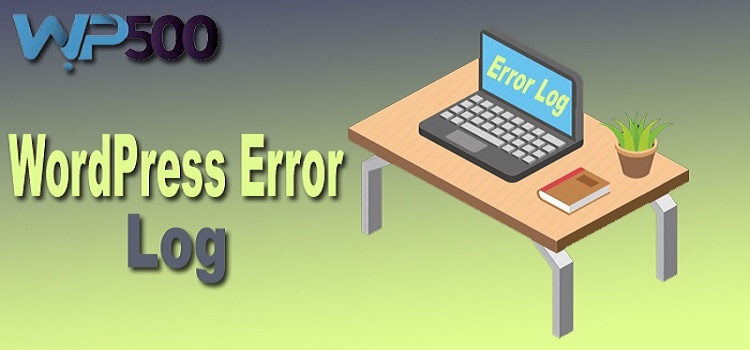Know About When and How to Enable the WordPress Error Log in an Effective Manner

For doing so, your first step should be enabling
the WordPress
Error Log. It helps the users in finding the errors that are
causing the problems that you are encountering. With the help of this, you can
track its source of occurrence to rectify them properly. So, you must first
enable the error log to proceed.
When do you need to enable the WordPress error log?
Let’s have a look at some of the situations or
problems when you need to enable it:
- If
you see your entire site crashed.
- If
you see a blank screen when trying to load the site.
- Very
slow performance of the site.
- When
you don’t know which plugins or themes are causing issues in the site’s
performance.
- If
getting a warning code such as error 500, error 404, and many others.
- You
can also set up a WordPress error log if a plugin or the theme isn’t functioning well.
Steps for enabling the error log in WordPress
Two ways can help you to enable the error logging
with WordPress. This can be done either manually or with a plugin. Let’s learn
about manual ways that you can do with 3 steps:
Accessing the Website’s Files
The first step that you can do is accessing the
site’s file. You will need direct access to your site’s files for activating
the WordPress logs. For doing this, one of the ways is using the File Transfer
Protocol (FTP). With an FTP client, users are allowed to log directly into the
site. Once done, you are free to edit, delete or add files if there’s any need
of doing so.
Editing the wp-config.php file
Many of you must have heard this term wp-config.php
file for the first time. It is a core file in which all the essential
configuration related details and database’s credentials are located. When you
need to access the wp-config.php file to edit it, just download and use an FTP
client. Apart from this, a file manager tool from the host’s cPanel can also
help you with this.
Locating the New WordPress Logs
By performing all these steps, The WordPress logs
are now ready and can be used. If you want to know about using it them go ahead
and read. For the previously occurred errors, you will need to trigger the
error again. You can do this by interacting with the element that caused the
error previously. The record of this error can be found by logging into your
site using FTP.
So, if you see any warning code during your WordPress Admin
Login, you can follow these steps as mentioned above to get rid of
them.
Summery
In this article, we will let you know about how to
fix WordPress Error Log? You don’t need to worry, get in touch with WordPress
expert team, and get an instant solution to any WordPress errors.
Post Your Ad Here
Comments